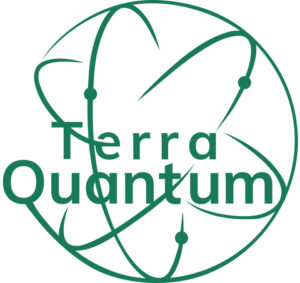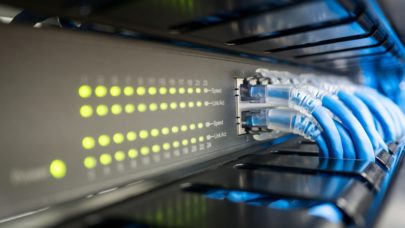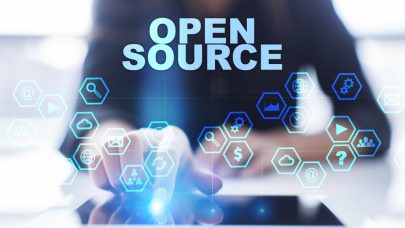ST. GALLEN, Switzerland, May 8, 2024 — Terra Quantum, a leader in quantum technology solutions, today announced the launch of TQ42 Cryptography, an open-source post-quantum cryptography library. This cutting-edge suite of quantum-resistant algorithms is designed to help businesses protect their data from current and future security threats. The expansion of its TQ42 quantum-as-a-service ecosystem complements TQ42’s existing offerings that provide easy access to quantum computing tools.
 Future quantum computers pose a significant threat to the digital world. Experts estimate that a quantum computer with just a few thousand logical qubits could break widely used encryption schemes, putting sensitive data at risk.
Future quantum computers pose a significant threat to the digital world. Experts estimate that a quantum computer with just a few thousand logical qubits could break widely used encryption schemes, putting sensitive data at risk.
Terra Quantum’s patented Quantum Key Distribution (QKD) protocols published in Nature’s Scientific Reports set the world record for securing long-distance communications with quantum encryption in 2023 and offer security for data in motion. To secure data at rest, strong algorithms such as those provided in the TQ42 Cryptography library are required.
“The addition of TQ42 Cryptography to the TQ42 ecosystem is a significant step, enabling organizations to start their journey towards quantum-securing their data,” said Markus Pflitsch, CEO of Terra Quantum. “It complements our existing QKD solution, providing a holistic approach to quantum security for both data in motion and data at rest.”
TQ42 Cryptography provides developers with a comprehensive suite of post-quantum algorithms, security and key management functions, including:
- Classic Quantum-Resistant Algorithms with Hash Functions and Symmetric Encryption.
- Asymmetric Post-Quantum Algorithms.
- Key Management with Secure File Deletion, Pseudo Random Key Generation, and an Encrypted Saving to File System.
Encompassing a wide range of applications, TQ42 Cryptography can be implemented across diverse platforms such as mobile, web applications, IoT, cloud and others. Some example of use cases include: securing smart home automation systems, enhancing Wi-Fi and Blockchain security, and achieving Perfect Forward Secrecy in sharing information.
“As organizations begin to plan for the post-quantum future, adopting appropriate cryptography solutions is crucial for maintaining the security of valuable information,” said Dr. Florian Neukart, Chief Product Officer of Terra Quantum. “TQ42 Cryptography provides an accessible entry point to start integrating quantum-resistant security measures into their applications, ensuring the long-term protection of sensitive data.”
TQ42 Cryptography caters to the needs of developers and security professionals by offering a user-friendly API, scalable architecture, and essential security features like key generation and file deletion capabilities. The library is available under two primary licensing options to accommodate the needs of organizations at different stages of their post-quantum migration journeys: Free Use is permitted under AGPLv3 and a Commercial licence is also available. Contributions will be welcomed in the near future under a Contributor license.
Later this year, Terra Quantum will expand the library to include support for Python, iOS and Android, additional post-quantum algorithms, and upgrade options, like the ability to purchase quantum keys generated from Terra Quantum’s proprietary Single Photon Quantum Random Number Generator (QRNG), which is designed and implemented according to the latest NIST standard (SP 800-90B) and certified by METAS.
The company also intends to expand the TQ42 ecosystem with the introduction later this year of Entropy-as-a-Service. This product will leverage their proprietary Quantum Random Number Generator (QRNG) to provide organizations with access to true random numbers, a critical component in secure cryptographic operations.
Additionally, the upcoming Quantum Keys-as-a-Service offering will utilize Terra Quantum’s proprietary Key Containers with encryption, enabling organizations to securely manage and distribute cryptographic keys. These advanced offerings will provide organizations with the opportunity to upgrade to the highest level of security and true entropy from quantum keys, building upon the foundation laid by TQ42 Cryptography.
To learn more about TQ42 Cryptography and how Terra Quantum can support your post-quantum migration journey, please visit the GitHub repository, or contact [email protected].
About Terra Quantum
Terra Quantum Group is a leading quantum technology company based in Germany and Switzerland. It provides “Quantum as a Service (QaaS)” in three core areas, the first one being “Quantum Algorithms as a Service.” Here, customers are provided access to an extensive library of algorithms, such as hybrid quantum optimization and hybrid quantum neural networks, which can be used for solving complex logistics problems or pattern recognition, among other things. Terra Quantum also develops new quantum algorithms for its customers or adapts existing algorithms to their specific needs. Secondly, through “Quantum Computing as a Service,” Terra Quantum offers its customers access to its proprietary high-performance simulated quantum processing units (QPU), the quantum ecosystem’s physical QPUs, while also developing native QPUs. The third division is “Quantum Security as a Service,” through which Terra Quantum offers its unique solutions for secure quantum and post quantum communications worldwide.
Source: Terra Quantum

























































